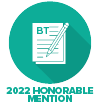The importance of medical communication in building trust

The American Medical Student Association and the ABIM Foundation partnered to launch the Building Trust Essay Contest. Medical students were asked to reflect on a time where they built, lost, or restored trust in a health care setting.
“Is this going to hurt?” The words rang from a young, noticeably anxious girl who gripped her mother’s arm. Reassuringly, I smiled and told her she would experience a slight pressure on her arm that would feel like a hug from her teddy bear. While she was still visibly shaken, my words brought about a reserved smile across her face. As I was adjusting the blood pressure cuff, I made a joke about the SpongeBob SquarePants shirt she was wearing. With similar effect, this quip brought about a small chuckle from the child as she became more relaxed. “Just sit tight and it’ll be over in a jiffy!” I gave these instructions as the cuff slowly began its monotonous inflation. On the radiating green screen, the results read 110/70. I congratulated her on having perfect numbers and began to prepare for the next patient when she asked a question that stopped me in my tracks: “What does blood pressure mean?”
I could define blood pressure using cardiac output and vascular resistance, and I could describe the effects of blood pressure on the cardiovascular system. However, my head scrounged for an answer to what blood pressure is and how I could relay that information to an 8-year-old.
Should I answer that blood pressure measures pressure against artery walls? Should I mention how the systolic and diastolic numbers correlated with the cardiac cycle? Luckily, the attending physician overheard our interaction and jumped in. “Blood pressure is just a sign of how your heart is doing. If it’s too high or too low, that means your heart is sick and needs to be treated.” Amazed, I observed the rest of the interaction with my mentor as he easily simplified complex concepts into digestible material for the girl. Although I had just finished my cardiology unit in medical school, I was humbled by my inability to provide a simple definition.
After the event, I began to garner an appreciation for medical communication between health care providers and their patients. Although it is important to retain updated medical knowledge, it is of even more importance to ensure that our patients understand this knowledge and how it affects their lives and health. Through these interactions, trust is fostered between the patient and health care provider.
I began to volunteer at more health fairs offered by my school in hopes that I could gain more exposure to medical communication and promote trust between our free clinic and the underserved communities that we served. We created pamphlets that instructed patients on at-home blood pressure monitoring and informed them of the importance of cardiovascular health. Though this was a small feat, it was astonishing to find that many of the patients at our health fairs expressed immense gratitude at having someone to sit down with them and clarify their medical concerns.
Having served as a tutor throughout my undergraduate career, I quickly recognized the ‘a-ha’ moments many of the patients expressed as their faces beamed at finally understanding the intricacies of their health. Oftentimes, we assisted patients through discussion of blood pressure and its effects, the importance of monitoring blood glucose levels, and the need to adhere to medication for better outcomes. Through these candid conversations, we found that patients became more comfortable and more willing to discuss their medical ailments and concerns.
By explaining the relevance of blood pressure to a patient’s health or discussing the progression of diabetes, I found that many patients felt comfortable in discussing their medical ailments. Instead of outright diagnosing a patient with heart disease, it may be more meaningful for the patient to learn they have heart disease and how it will affect their life; patients may wish to hear about the feasibility of living with heart disease and how the medication regimen will fit into their busy lives.
Due to a plagued history of medical mismanagement against minority communities in medicine, many patients in these communities are wary of trusting a health care worker. Through my work, I want to improve trust in underserved communities by providing holistic, empathetic care that allows the patient to rest assured that I will prioritize their autonomy and health.
Nicholas Wilson is a second-year medical student at Morehouse School of Medicine in Atlanta, GA. With aspirations of becoming an Internal Medicine-Pediatrics (Med-Peds) physician, Nicholas plans on treating a wide variety of medical problems throughout his career. His research interests are health disparities, sickle cell disease, biomarkers, and improvements in patient care. In his spare time, Nicholas enjoys trying (and occasionally) cooking new foods, improving his painting skills, going for relaxing runs, and catching up with friends and family.
Building Trust Essay Contest Winners & Honorable Mentions
- What We Hold and What We Share
- Bridging Generations in Medicine: Trust and Professionalism in a Rural Town
- The Clay Heart
- The Weight of Words
- Peeking Behind the Curtain
- Making Sense of the Unfamiliar
- Breaking Silence
- From Resilience to Relief
- Whispers of Solace: My Journey as an Abortion Doula
- Reading Between the Lines: Unveiling Cultural Understanding to Build Trust in Patient Care
- The Cultural Context of Hope
- Taking a Knee

